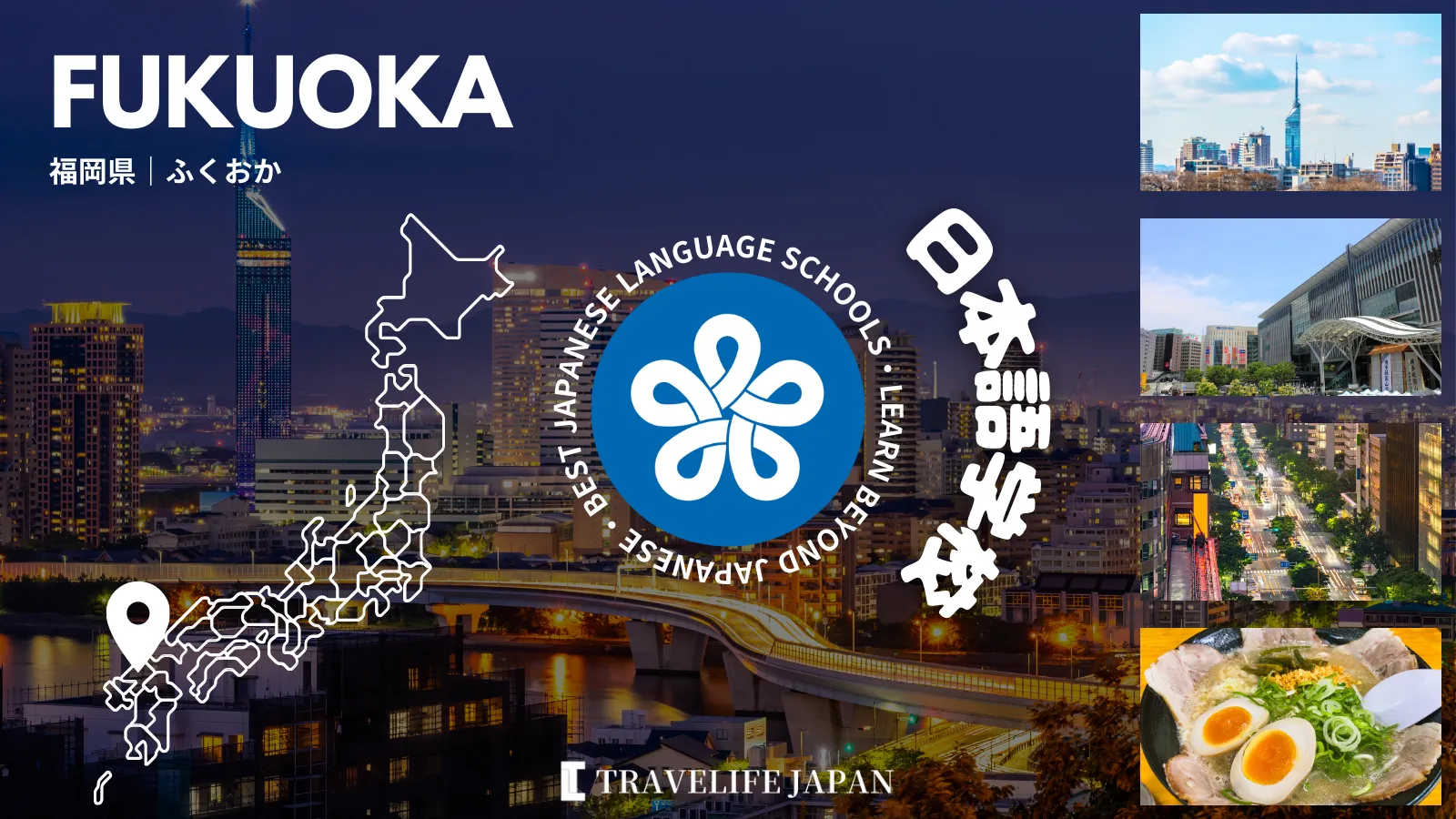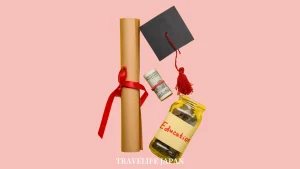Fukuoka, a city located in Japan’s Kyushu region, is celebrated for its captivating blend of culture and living environment. This harmonious fusion of tradition and modernity, surrounded by natural beauty, offers residents and visitors a delightful experience. In this overview, we’ll delve into Fukuoka’s cultural attractions and living conditions, including the potential for studying Japanese in this enchanting city.
Introduction of Fukuoka
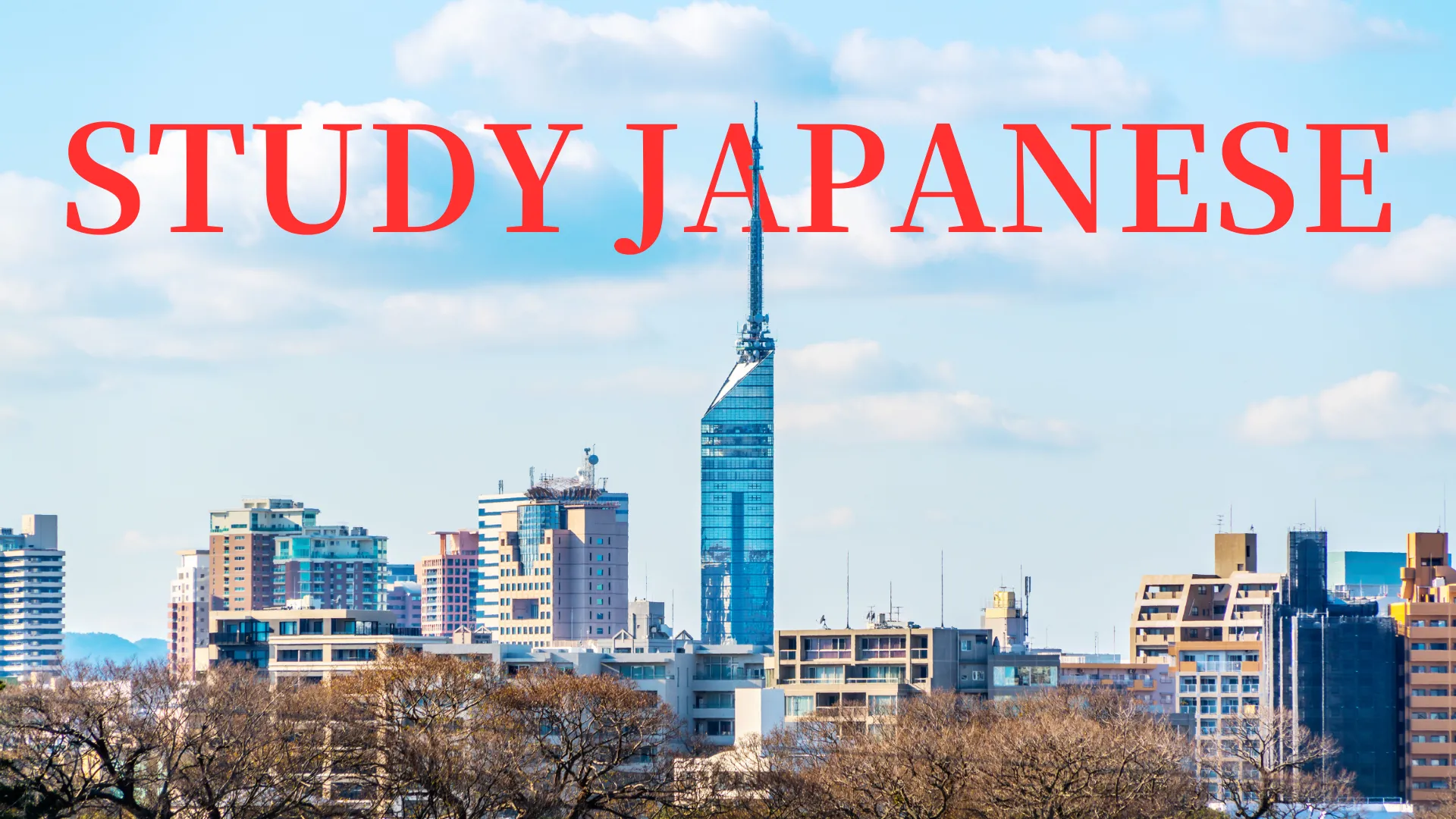
Fukuoka, in Japan’s Kyushu region, is a city where culture and comfort meet, making it a great place to study Japanese. Known for its delicious food, like Hakata ramen and mentaiko, Fukuoka is a paradise for food lovers. The city celebrates its culture with festivals like Hakata Gion Yamakasa, showcasing its traditions through vibrant events.
Art, history, and beautiful parks, such as Ohori Park, add to Fukuoka’s charm, offering peaceful spots and cultural insights. For outdoor fans, nearby mountains and beaches provide adventures like hiking and surfing.
Fukuoka is also a hub for learning, with plenty of schools and universities welcoming students from all over. Its public transport system makes getting around easy, and the city is known for being safe and friendly.
Living here offers a mix of housing options close to shops, eateries, and entertainment, ensuring a comfortable life. Fukuoka blends the old with the new and nature with city life beautifully, attracting students and visitors worldwide to its welcoming environment. It’s an ideal place for those looking to study in Fukuoka at Japanese language schools, immerse themselves in Japanese culture, and enjoy a rich and diverse lifestyle.
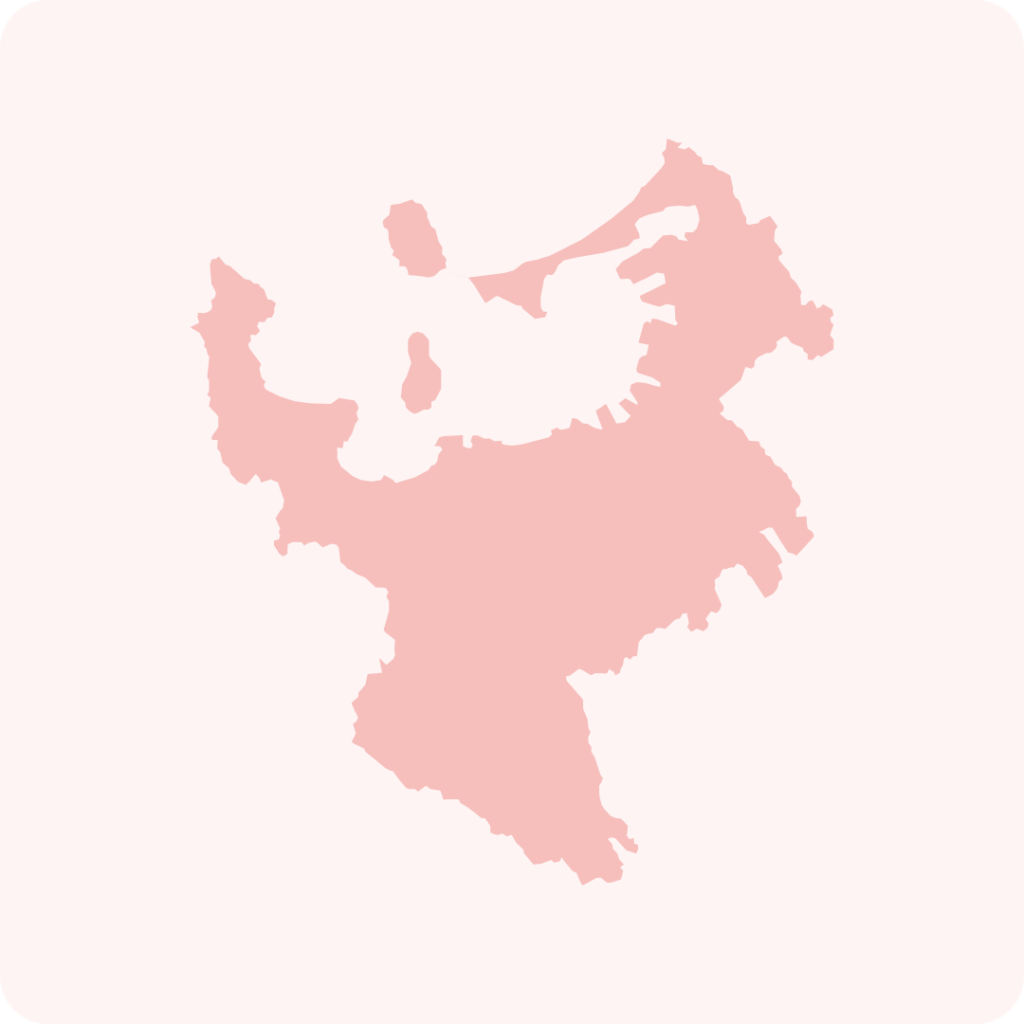
Area
4,987 ㎢ (29th in Japan)

Population
5,135,000 people

Avg. Temperature
17.3℃ (14.0〜21.3℃)

Min. Wage
941 JPY/hr

Best Japanese Language Schools in Fukuoka
1. GenkiJACS|Genki Japanese & Culture School
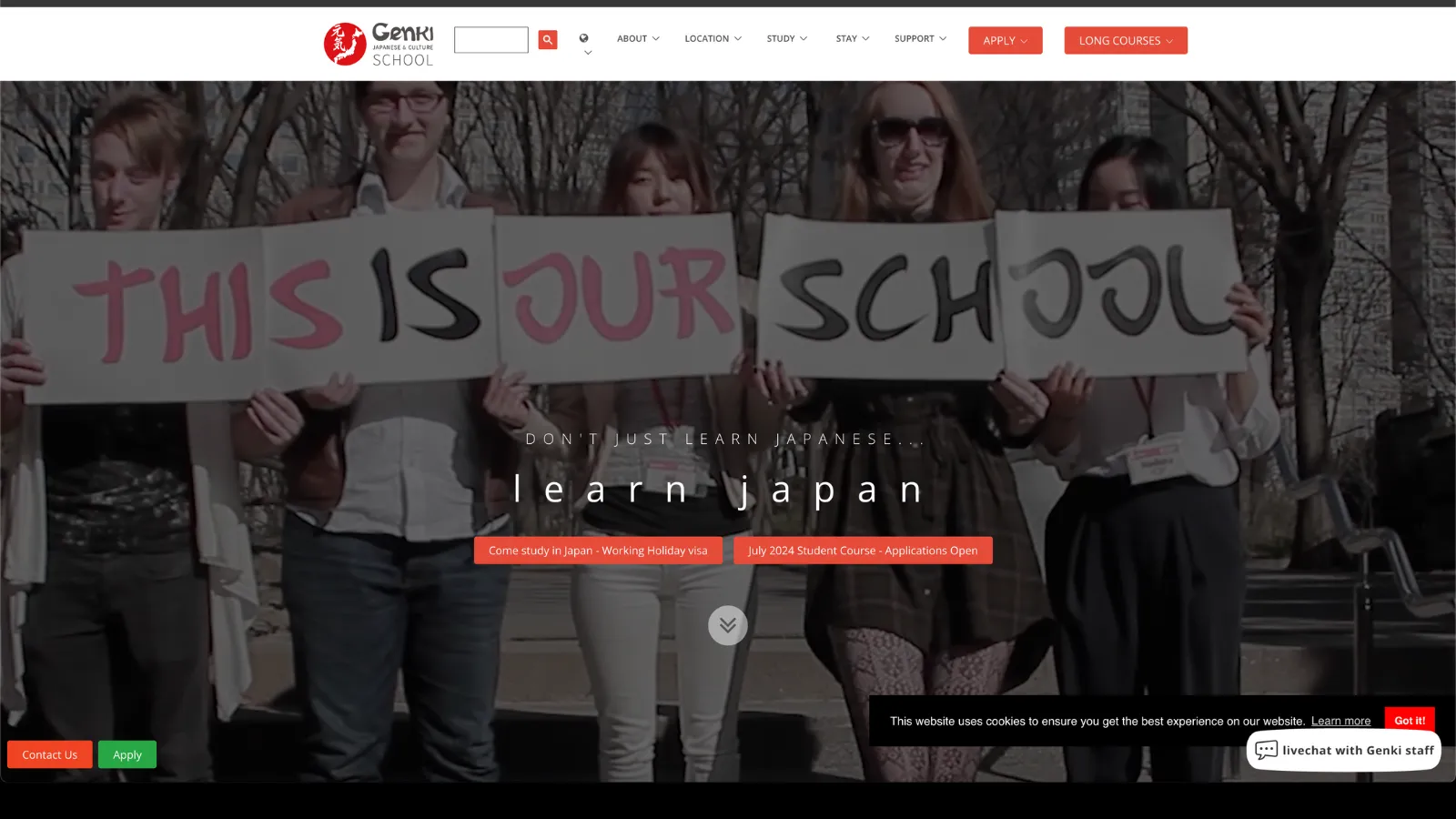
GenkiJACS, short for “Genki Japanese and Culture School,” is a renowned Japanese language school that was founded by Rie Kirby in Fukuoka, Japan. The school’s unique approach to teaching Japanese not only focuses on language proficiency but also emphasizes cultural understanding. It has gained international recognition for its exceptional language programs and small class sizes. GenkiJACS has expanded to multiple locations, including Fukuoka, Tokyo, Kyoto, and Nagoya, and continues to be a leader in providing high-quality Japanese language education to students from various linguistic backgrounds.
WHY GenkiJACS|Genki Japanese & Culture School
- Small Class Sizes
GenkiJACS boasts the smallest class sizes among accredited Japanese language schools, with a maximum of 8 students per class, allowing for personalized attention and effective learning. - Tailored for Western Students
With 90% of its students hailing from the US, Europe, and Australia, GenkiJACS customizes course content to meet the specific needs of Western learners, enhancing the overall educational experience. - Flexible Scheduling and High Quality
GenkiJACS offers flexible start dates, enabling students to begin their studies any Monday throughout the year and to choose the duration of their course. The school is government-accredited and internationally recognized as one of the few Japanese language schools accredited by the International Association of Language Centres. Additionally, it has been awarded the prestigious title of Star World Language School, signifying its commitment to excellence in language education.
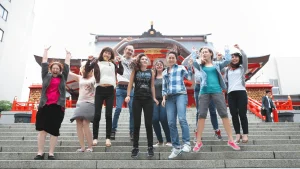
2. FFLC|Fukuoka Foreign Language College

Learning Japanese at FFLC (Fukuoka Foreign Language College) opens the door to a world of cultural diversity and international connections. Situated in the vibrant city of Fukuoka, FFLC has a rich history dating back over a century, offering students from across the globe a unique opportunity to study foreign languages and immerse themselves in a truly international environment. With a global outlook, internships, study-abroad programs, community engagement, and comprehensive student support, FFLC fosters a sense of unity and belonging among its diverse student body, making every day a stimulating and welcoming experience. If you’re looking to learn Japanese and become part of a global family, FFLC is the place for you.
WHY FFLC|Fukuoka Foreign Language College
- Multicultural Learning Environment
FFLC fosters an international and multicultural atmosphere where Japanese students and students from over 30 countries come together. This diverse environment naturally refines language skills, cultural sensitivity, and global awareness, offering a holistic educational experience. - Practical Career-Oriented Courses
As a vocational school for languages, FFLC focuses on practical, career-aligned courses that equip students with professional knowledge and skills. The education is designed to prepare global citizens for success in the real world, ensuring they thrive in their chosen career paths. - Experiential Learning and Community Engagement
FFLC places a strong emphasis on experiential learning, offering numerous opportunities for students to interact and engage with their peers and local communities. Language skills and sociality are cultivated through fun student and community exchange events, volunteer activities, and an overall congenial atmosphere that fosters a sense of belonging among students and instructors.
3. FJLS|Fukuoka Japanese Language School
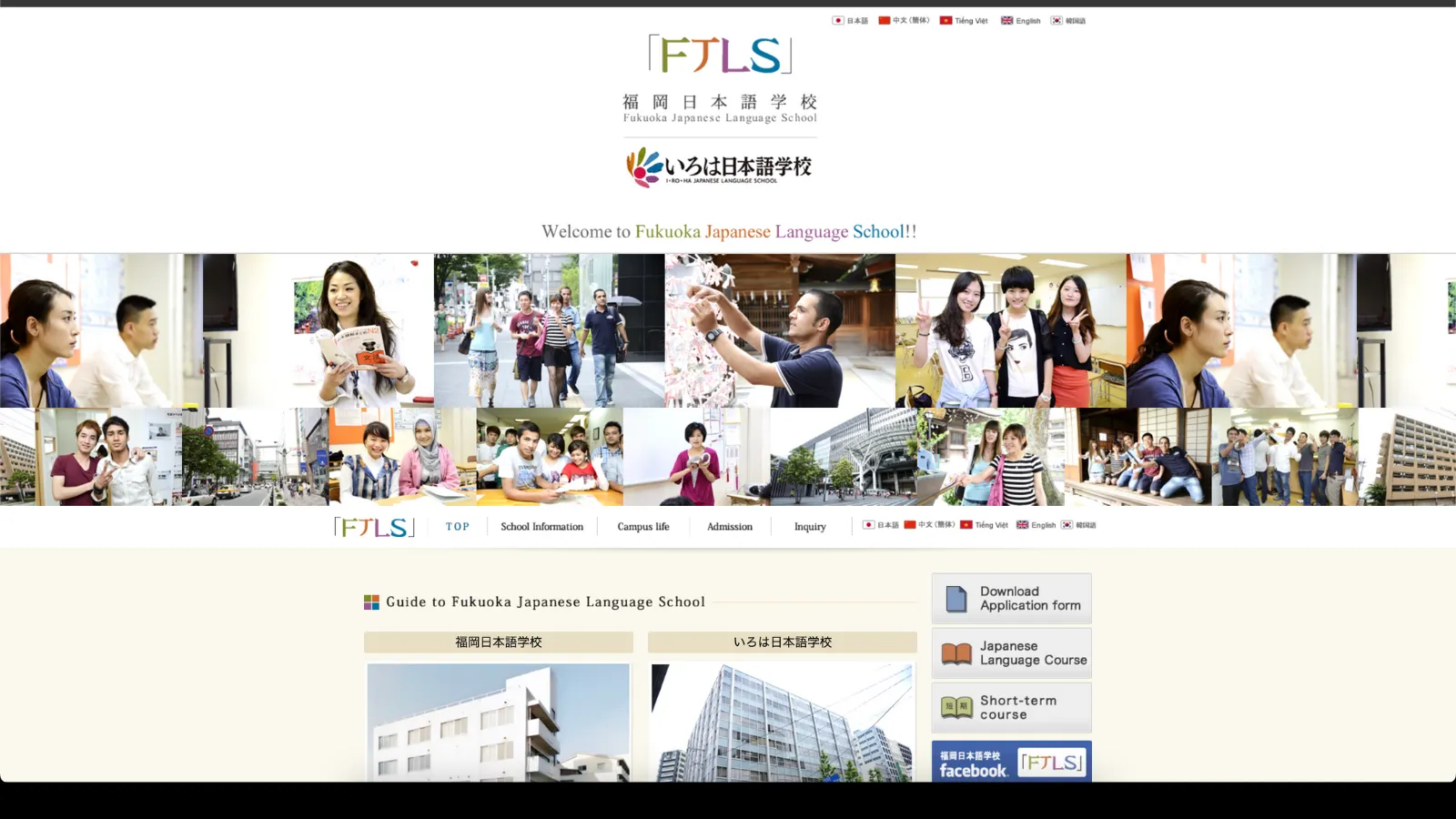
Fukuoka Japanese Language School (FJLS) embodies a spirit of unity, treating all students as a part of a close-knit family, bound by shared hopes and dreams of studying in Japan. Beyond language acquisition, FJLS places a strong emphasis on cultural enrichment and personal growth, ensuring that every student is equipped with the tools to thrive anywhere in the world. The school’s goal is to bring a transformative and marvelous change to the lives of those who choose to study in Japan with them.
WHY FJLS|Fukuoka Japanese Language School
- Unbeatable Location
Fukuoka Japanese Language School (FJLS) offers an unparalleled advantage with its location, just a 1-minute walk from JR Hakata Station. This strategic proximity not only provides easy access to cultural exchange opportunities but also makes it a prime spot for international students seeking part-time job opportunities, enhancing the overall living experience. - Comprehensive Support and Caring Environment
FJLS distinguishes itself by not only focusing on language education but also providing extensive support in a warm and family-like atmosphere. Students are encouraged to seek guidance and assistance on a wide range of issues, from daily life concerns to psychological well-being, ensuring their holistic development and comfort during their study abroad journey. - Diverse Multinational Community
With students hailing from more than 10 countries, including various regions in Asia, FJLS fosters a multicultural environment where the learning experience transcends geographical boundaries. This rich diversity enables students to learn and understand different cultures, fostering a sense of inclusivity and unity, regardless of their country or region of origin.
4. Meiji Academy
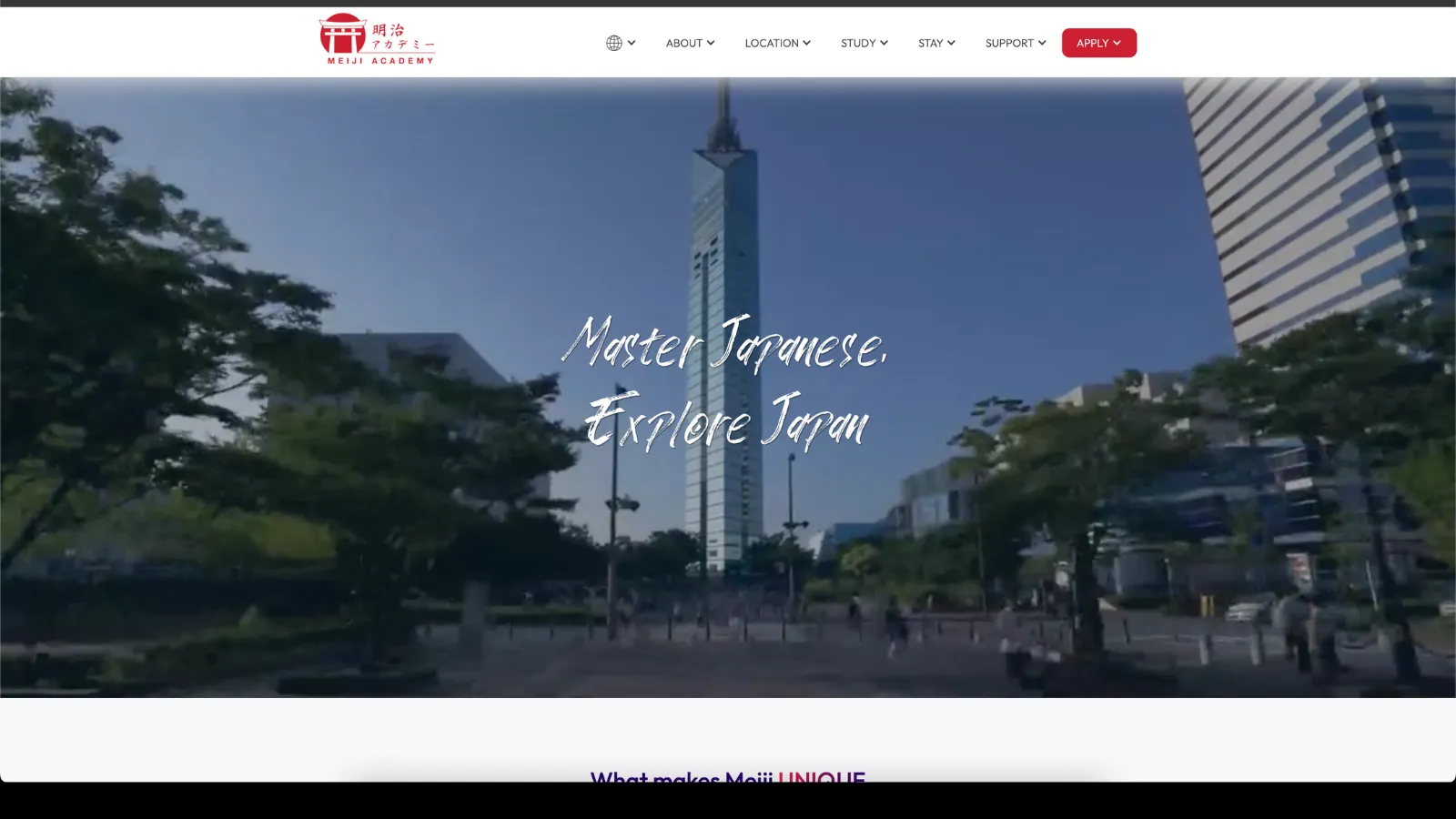
Meiji Academy, established in Fukuoka in 2014, stands out as a unique Japanese language school founded by a dynamic international team of young graduates who understand the challenges of studying and living in Japan. In contrast to many traditional Japanese schools, Meiji Academy offers a student-centered approach with small class sizes, personalized services, and flexible, customized study schedules. This distinctive focus on meeting the needs of international students sets Meiji Academy apart, ensuring a tailored and supportive learning environment.
WHY Meiji Academy
- Small Class Size
Meiji Academy prides itself on maintaining small class sizes, typically with only 3 to 5 students, ensuring a personalized and effective learning experience. While exceptions may arise during peak seasons, the emphasis remains on individualized attention. - Flexible Start Dates
Meiji Academy offers year-round courses, allowing students to begin their studies on any Monday and tailor the duration to their preferences. This flexibility ensures that learning aligns with the students’ schedules, with some exceptions for complete beginners and peak summer season. - Inclusive Learning
Meiji Academy welcomes students of all levels, from complete beginners to those who have achieved JLPT N1 proficiency. The school’s classes are designed to cater to the unique needs of each Japanese language learner, providing a customized education approach for all.

Popular Fukuoka Dialect Phrases
- なんしようと? Nanshiyouto?
“What are you doing?”. This phrase is used to inquire about what someone is doing or as a casual greeting when you’re curious about someone’s activities. - ばり~ Bari~
“Very” or “Extremely”. This expression is typically used before adjectives to emphasize their intensity. Its origin is not entirely clear, but it is believed to be derived from the English word “very.” - ~やけん ~Yaken
“Because ~”. This is a dialect-specific ending used in the Hakata dialect to indicate a reason or cause. It can be extended to “~やけんね” to add a softer tone. - ばい・たい Bai・Tai
“~だよ” (informal). “ばい” is used in the Hakata dialect to emphasize the ending of a sentence. It means “~だよ” in standard Japanese. “たい” is a similar expression with a softer nuance. - よかよ! Yokayo!
“Sure!” or “Okay!”. This is used to express agreement or acceptance enthusiastically. It’s an affirmative response. - しゃーしい Shaashii
“Noisy,” “Bothersome,” or “Troublesome”. This term is used to describe something that is annoying, inconvenient, or causing trouble. It’s similar to the word “せからしか” in some dialects. - ~かいな ~Kaina
“I wonder if ~?”. This expression is used to seek confirmation or ask for someone’s opinion. It means “I wonder if ~?” or “Do you think ~?” - どげんしたと? Dogenshita to?
“What happened?”. This is a way of asking someone, “What’s wrong?” or “What happened?” It’s similar to saying, “どげんね?” which means “What’s going on?” - たべりー Taberii
“Eat it!”. This is an informal way to tell someone to eat something. - ~っちゃん ~cchan
“It is ~” or “It’s ~”. “~っちゃん” is used to express agreement with someone or to confirm a statement. It’s different from “ばい” in that it seeks agreement from the other person. - よか Yoka
“It’s okay,” “No problem,” or “All right”. “よか” is used to reassure someone or give permission, and it can also be used in a negative sense, such as “せんでよか” (It’s okay not to do it). - からう Karau
“To carry (on one’s back)”. This term is used when referring to carrying something on your back, like a bag or backpack.
Conclusion
Fukuoka’s unique charm lies in its harmonious blend of culture and living environment. The city’s culinary delights, traditional festivals, and cultural attractions offer a rich tapestry of experiences. Its natural beauty and convenient living conditions add to its allure. Whether you are a resident or a student learning the Japanese language, Fukuoka’s enchanting atmosphere makes it a remarkable destination for cultural enrichment and personal growth. It’s a city where tradition and modernity coexist, offering a truly unique and gratifying experience.
- Best Japanese Language School in Japan
- Best Japanese Language Schools in Hokkaido
- Best Japanese Language Schools in Tokyo
- Best Japanese Language Schools in Nagoya Aichi
- Best Japanese Language Schools in Kyoto
- Best Japanese Language Schools in Osaka
- Best Japanese Language Schools in Fukuoka
\ Follow Our Community /
STUDY IN JAPAN
INQUIRE NOW
Please feel free to seek our help at NO COST.
We are looking forward to meeting you!
